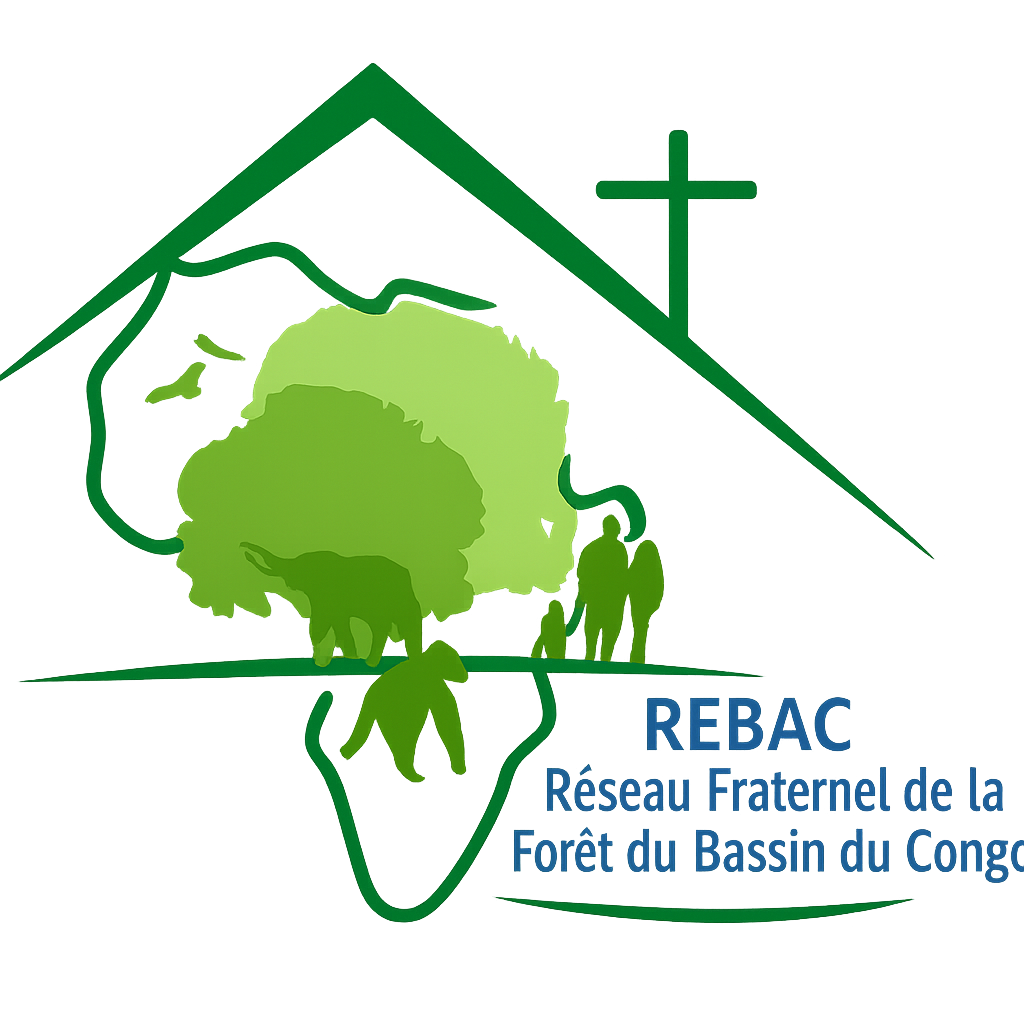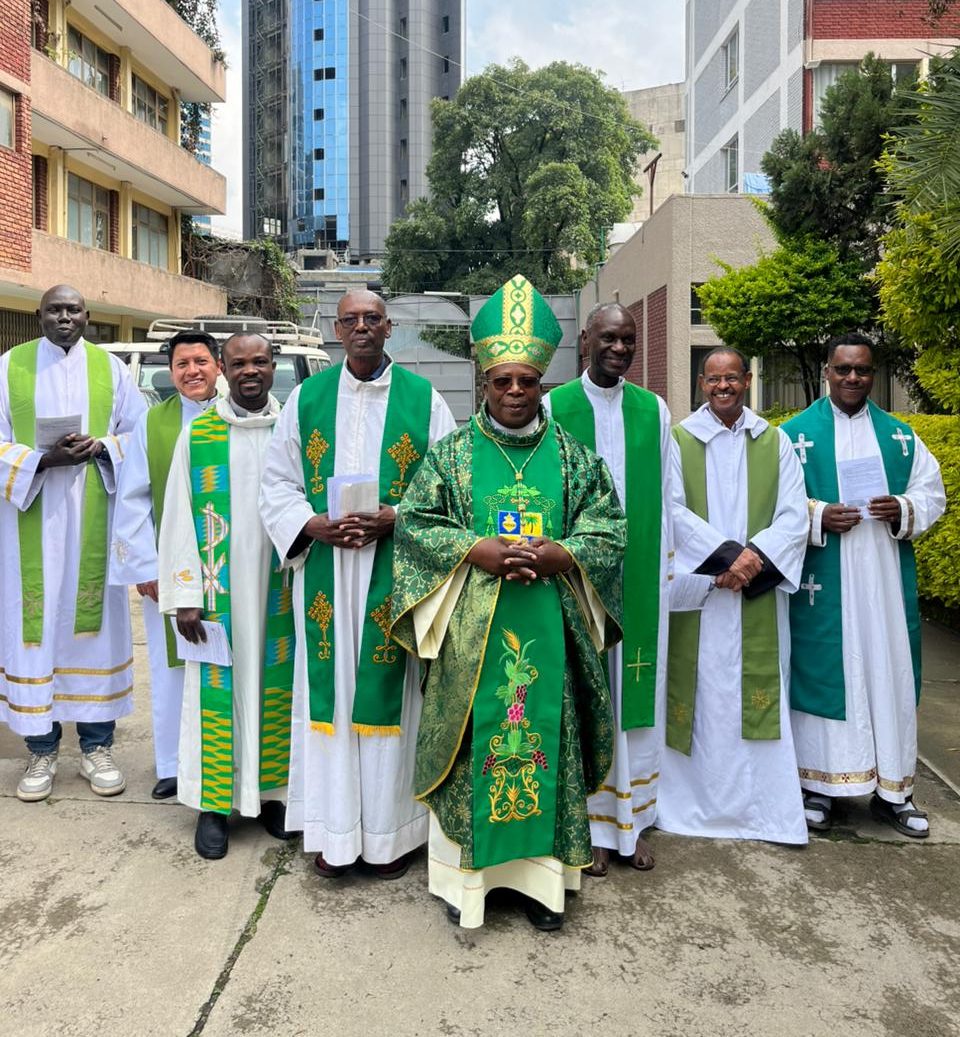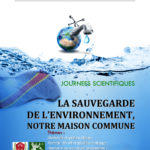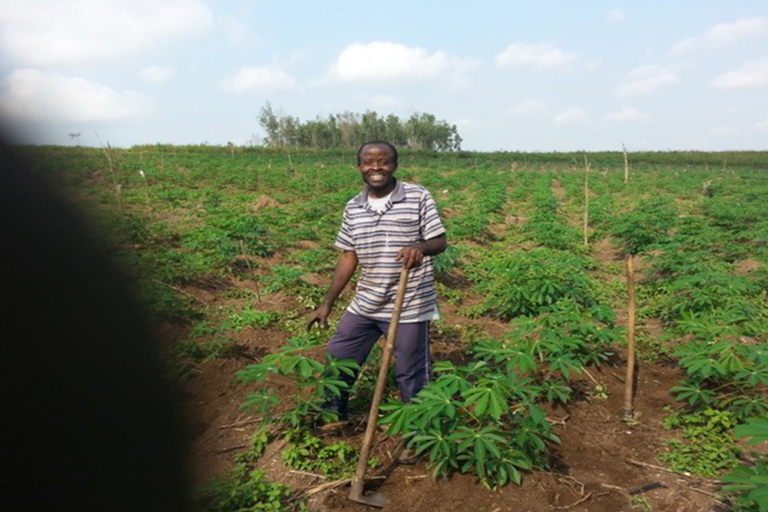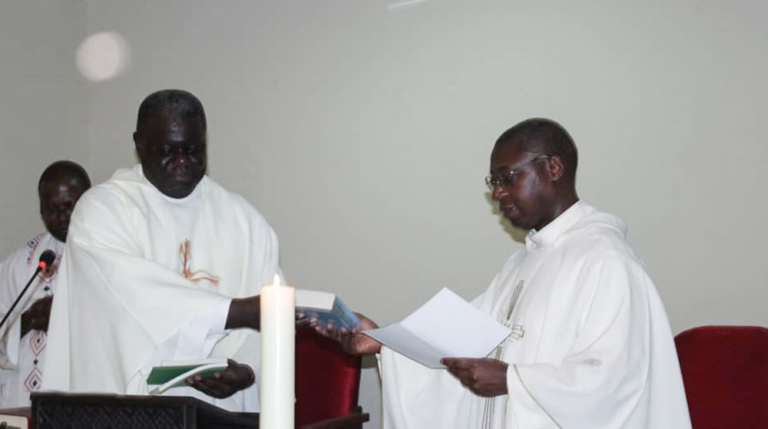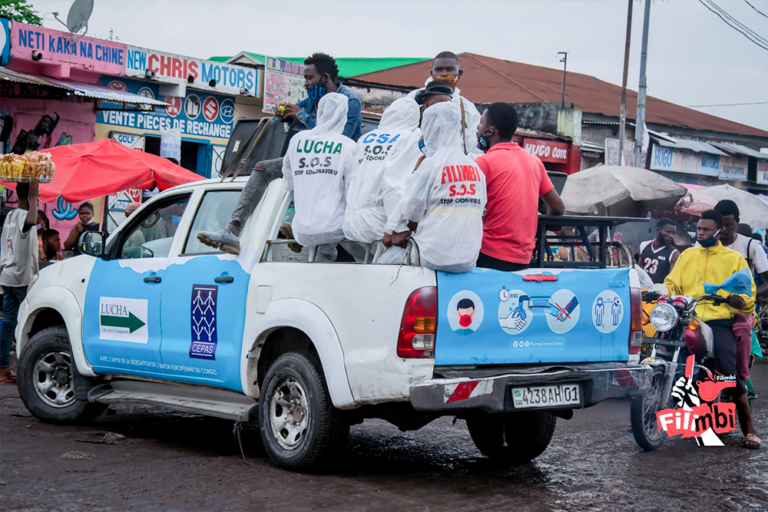African Climate Week and Africa Climate Summit’s Faith Statement
Almost Final Draft for final consultation on the 7 September 2025 at Skylight Hotel
Note: This statement has been developed through an extensive consultative process with faith groups and
organizations
The annual African Climate Week (ACW), convened under the United Nations Framework Convention on Climate
Change (UNFCCC), serves as one of the Regional Climate Weeks that prepare the ground for the UN Climate
Change Conference of the Parties (COP). It provides a platform for governments, civil society, private sector actors,
and non-state stakeholders to align regional priorities with the global climate agenda. As Africa prepares for COP30
in Belém, Brazil, the outcomes of ACW 2025 will play a critical role in shaping the continent’s unified positions on
climate finance, adaptation, loss and damage, and energy transitions. Within this process, faith actors bring a unique
moral and ethical perspective, complementing technical and political negotiations with calls for justice, equity, and
care for creation.
The Africa Climate Summit (ACS), co-hosted by Ethiopia and the African Union Commission in September 2025,
represents Africa’s flagship political platform for climate diplomacy. Building on the first ACS held in Nairobi in
2023, ACS2 emphasizes “Accelerating Global Climate Solutions: Financing for Africa’s Resilient and Green
Development.” The summit is designed to amplify Africa’s voice in COP processes, particularly on climate finance
and implementation gaps. Faith communities, deeply rooted in African societies, are critical actors in this effort.
Their engagement ensures that climate commitments are not limited to policy frameworks but are also grounded in
moral responsibility, grassroots mobilization, and inclusive development approaches that reach the most vulnerable.
Against this backdrop, the African Climate Week and Africa Climate Summit’s Statement of Faith emerges as a
collective moral declaration by African faith actors. It signals the determination of churches, mosques, interfaith
bodies, and faith-based organizations to stand in solidarity with global efforts to address the climate crisis, while
calling for urgent action to correct systemic injustices. The statement reflects Africa’s faith traditions and indigenous
wisdom, offering a unifying message of hope, responsibility, and accountability ahead of COP30. By issuing this
declaration, faith actors seek to elevate the ethical dimensions of climate action, ensuring that Africa’s voice at COP
is not only political and economic, but also spiritual, moral, and deeply rooted in the lived realities of its people.
Weunanimously share the conviction, as a matter of principle, that a continent with such a level of
demonstrated enhanced climate ambition within the current and updated NDCs must become fit to tackle the
climate challenge, a responsibility shared with the global community. As the climate crisis is a present and future
impediment to fullness of life, joint and ramped up effort among stakeholders is imperative.
Together,
We authenticate that creation is entrusted to humanity as a sacred responsibility, as affirmed in the Bible
“The Lord God took the man and put him in the Garden of Eden to work it and take care of it” (Genesis
2:15) and in the Qur’an, which teaches that humanity is appointed as khalifah (stewards) on earth (Qur’an
2:30). These shared foundations compel us, as people of faith, to protect the integrity of creation, defend
the vulnerable, and pursue justice in responding to the climate crisis.
While underscoring the complex reality of vulnerability and risk posed by the existential climate change
threat that Africa finds itself in, call for revitalized effort by the Community of Nations to strengthen
Africa’s climate action in adapting to climate impacts, leveraging climate finance to drive real, and
impactful climate solutions, and centering gender and youth inclusion at the heart of climate policy and
action. Additionally, we implore national non-state actors to enhance their climate justice advocacy efforts
targeting governments. This should be complemented with provision of innovative policy ideas, strategies
and non-state actor-led impactful climate solutions.
1
Therefore,
The Africa Climate Summit and African Climate Week’s Faith Statement stands as a collective moral
witness at this critical moment for leaders to move beyond rhetoric, demonstrate resolve, and show
solidarity to safeguard the earth for current and future generations. We amplify the following as central
matters for Africa that must be urgently considered: climate justice, equitable financing, strengthened
adaptation, and the protection of human dignity alongside God’s creation.
- Peace for Climate Justice
Research has shown that many African countries are lagging in the implementation of their National Adaptation
Plans (NAPs) due to the absence of peace and stability. Without peace, climate solutions cannot thrive; and without
climate justice, peace itself remains fragile. Across the continent, communities are trapped in the double bind of
climate vulnerability and conflict, where droughts, floods, and environmental degradation intensify displacement,
insecurity, and fragile governance. Faith traditions remind us that justice and peace are inseparable, and that the
well-being of creation depends on both.
Therefore, we call on African states to:
Urgently implement their National Adaptation Plans (NAPs) in ways that are conflict-sensitive and
inclusive.
Extend adaptation support to fragile and conflict-affected regions, including Sudan, the Sahel, and the Horn
of Africa.
Move beyond commitments on paper, translating NAPs into tangible protection and resilience for
vulnerable communities.
Address gaps where NAP implementation has created tensions, by ensuring participation, equity, and
sensitivity to conflict dynamics.
Weurge African leaders to:
Prioritize peace as a foundation for climate justice in national and regional policies.
Integrate environmental restoration, equitable resource-sharing, and inclusive governance into strategies for
resilience.
Break the cycle of fragility by demonstrating that peace and climate justice are inseparable both essential
for safeguarding life, dignity, and the future of the continent. - DebtCancellation as a Path to Climate Justice
From the heart of our spiritual traditions, we lift up the call of the Jubileea sacred time of release, renewal, and
restoration. In the Bible, Jubilee (Leviticus 25) was a time when debts were cancelled, the land was allowed to rest,
and justice was restored among the people. In the Qur’an, too, we are reminded that creation belongs to God and that
humanity is entrusted as khalifah (stewards), not exploiters. Today, Africa faces a new form of bondage: many
nations spend more on servicing external debts than on financing climate adaptation, while floods, droughts, and
loss of biodiversity continue to devastate communities. This diversion of national wealth away from resilience and
creation care undermines justice and deepens suffering.
Therefore, we call on global leaders and international financial institutions to embrace a new Jubilee, cancelling
unjust debts so that African nations can redirect their resources toward protecting creation, building resilience, and
supporting the most vulnerable. Without this moral and financial reset, Africa’s people and ecosystems will remain
trapped in cycles of debt, disaster, and despair.
2
We urge African leaders to speak with one voice, demanding and insisting on the recognition of a global Jubilee
year that addresses both debt and climate justice. This Jubilee must open space for nations to invest their GDP in
climate adaptation, renewable energy, and sustainable development rather than in debt repayments. By invoking
Jubilee, Africa can remind the world that true justice is not found in endless debt service and exploitation, but in
restoration, solidarity, and shared life for present and future generations. - Climate Finance
Africa is on the frontlines of the climate crisis, bearing immense annual losses while receiving only a fraction of the
support required. Most available funds are directed to mitigation, with little allocated to adaptation and almost none
reaching Loss and Damage needs. COP29 left the New Collective Quantified Goal (NCQG) unattended, creating
further uncertainty and deepening the injustice that Africa faces. This situation demands both continental resolve
and international accountability.
As a matter of principle, urgently required adaptation finance should not increase the debt burden of already
struggling vulnerable and poor nations. Debt imperils economies and it is deeply unjust if finance meant to address
the climate crisis, safeguard life and livelihoods drives greater debt burden in these nations. Instead, it is an
imperative of justice that carbon emitters pay for the damage they cause and offer reparation to poor and vulnerable
nations.
Weurge African leaders
to go beyond the unfinished outcomes of COP29 by uniting behind a bold, uncompromising position at the
Africa Climate Summit and in the lead-up to COP30.
Leaders must advocate for an NCQG implementation with a fair share for adaptation, and d Loss and
Damage finance, and direct grant-based support to vulnerable communities,
To commit to enhancing mobilization efforts to assist their citizens. Africa must strengthen domestic
accountability, reduce dependence on external debt, and prioritize investments that build resilience for the
poorest and most affected.
To consider macroeconomic impacts, structural realities, and safeguards while engaging in innovative
sources of finance and ascertain just, and equitable climate finance for Africa’s climate needs
Weurge Global North governments and leaders,
whose historic emissions have fueled the crisis, to recognize that climate finance is a matter of justice, not
charity. The Global North must scale up predictable, grant-based finance, fulfill their overdue promises,
and work in partnership with Africa on a win–win basis. Such cooperation rooted in fairness, responsibility,
delivery of commitments by developed countries, and mutual benefit will allow Africa to build resilience,
and humanity as a whole to safeguard creation for current and future generations.
Deliver on the COP 26 doubling adaptation finance goal and set a new and ambitious adaptation finance
target - Faith Statement on Emission Reduction, Just Energy Transition and Energy Justice
Wecall upon all world leaders, particularly the heads of states of most advanced economies, that alone are
responsible for more than 75% of global emissions, to set more ambitious emission reduction targets before COP 30,
targets that operationalize COP 28 Global Stocktake energy targets. This is a prerequisite to maintain the 1.5-degree
guardrail acknowledging that it is unjust to both people and the planet to backtrack emission reduction efforts.
We affirm that the transition from fossil fuels to renewable energy must be just, fair, and inclusive. It must not
abandon the workers and communities whose livelihoods depend on coal, oil, and other fossil fuel industries. From
the coal regions of South Africa to the oil-producing areas of Nigeria and beyond, the shift to clean energy must
3
uphold dignity, create new opportunities, and build resilience. At the same time, we recognize that access to energy
remains one of the most fundamental challenges facing the African continent, even after decades of extracting
strategic resources that were meant to transform its future. Energy must serve the people, not exploit them, and
Africa’s transition must be built on justice, equity, and sustainability.
Therefore, it is crucial that the International community and African governments prioritize advancing a just
transition to enable economy and sectoral wide systemic change to deliver the ambition of a safe, emission-free,
equitable and rights-based shift to green and sustainable economies. Stakeholder inclusion must underpin this
engagement.
Therefore, we call on African leaders, the Africa Climate Summit, and COP30 to:
Adopt a global Just Energy Transition framework that is adequately financed and centered on people.
Ensure dedicated funding for green jobs, skills training, and community empowerment.
Guarantee that renewable energy access reaches Africa’s poorest and most vulnerable communities.
Integrate Just Energy Transition into the New Collective Quantified Goal (NCQG) and the Article 2.1 C
operationalization so Africa and the Global South secure the resources required for an equitable transition,
sustainable, and climate-resilient future.
Operationalize a fair and just transition to clean, renewable energy systems that are affordable, efficient,
and accessible to all communities.
Support efforts to expand renewable energy including decentralized power systems for Africa’s energy
sovereignty
We further call on major emitters and all developed countries to lead the divestment from fossil fuel
energy sources, transition away from fossil fuels, and provide actionable Just Energy Transition finance
packages that are fair and respond to realities of vulnerable African economies. - FoodSovereignty, Creation Care, and Community Resilience
We affirm that food is a sacred gift from God, and the land, water, and seeds that sustain life are entrusted to
humanity as stewards, not exploiters. Priority must be given to protecting and scaling up indigenous and faith-rooted
practices that have long safeguarded Africa’s food systems and biodiversity. The sacred Ethiopian Church Forests,
agroecological methods in Ethiopia, Maasai pastoralism in Kenya and Tanzania, traditional seed systems in Mali
and Niger, and faith-based conservation initiatives in Nigeria and South Africa all demonstrate how spirituality,
tradition, and ecology can work together to sustain communities and creation. These practices not only feed people
but also preserve biodiversity, enhance resilience, and ensure food security for future generations.
Therefore, we call on African leaders at the Africa Climate Summit and on global leaders at COP30 to:
Give priority to policies and financing that protect and expand indigenous and faith-rooted practices such as
the Ethiopian Church Forests, alongside other traditional models of stewardship.
Invest in agro ecology and community-based systems that strengthen biodiversity and resilience while
securing food sovereignty.
Safeguard local food systems and community rights from the encroachment of industrial agriculture and
extractive models of development.
Prioritize women and youth, who are the principal custodians of seeds, soils, forests, and farming
knowledge in Africa.
By giving priority to food sovereignty, agroecology, and faith-rooted practices such as the Ethiopian Church Forests,
Africa can foster resilience, and witness to the world a sustainable path rooted in justice, dignity, spirituality, and
care for creation.
4 - Tackling the persistent adaptation gap
Africa has become a victim of deadly floods, droughts and cyclones due to global warming. The frequency and
intensity of climate impacts overrun ecological, social and structural systems with sheer and unprecedented
consequences on the African people. Hard-won development gains are backtracked with inequalities getting deeply
entrenched by the day and human dignity starkly compromised.
The urgency of supporting communities in climate distress and peril must predicate global action including through
multi-stakeholder partnerships to facilitate evidence-based adaptation actions and resilience building galvanized by
innovative policy and financing strategies in Africa
Therefore,: - We call on African leaders at the Africa Climate Summit and on global leaders at COP30 to Ensure
delivery of a set of the Global Goal on Adaptation indicators that include provision, mobilization and
delivery of Means of Implementation in particular finance. - Wecall on African leaders to prioritize design and development of financing arrangements that respond to
the unique nature of the adaptation finance gap in Africa and deliver grant based financing. - We call on African governments to prioritize costing and mainstreaming climate risks into development
and economic planning in a manner that ascertains Africa addresses barriers to unlocking adaptation
finance at scale - Advancing Loss and Damage efforts
Ongoing efforts by actors in Africa to strengthen early warning systems is notable. However, much needs to be done
to building comprehensive and affordable disaster risk management, including prevention and mitigation, disaster
risk reduction, emergency preparedness, climate-induced mobility, recovery, rehabilitation and reconstruction in
view of climate disasters.
The challenge at hand is one of great magnitude.
Wecall upon African governments to - Invest in institutional and structural fitness to respond to Loss and Damage by buttressing Africa’s
capabilities in coordination, developing responsive programming
2.
Enhance, in cooperation with Multilateral Development Banks, efforts to integrate climate risk in a manner
that unlocks finance at scale for recovery and reconstruction that remains under-addressed - Pursue arrangements such as Climate Resilient Debt Pause ( and cancellation) Clauses that offer post
disaster relief - Pursue funding from the Loss and Damage Fund including direct budget support and community livelihood
support through Non-State Actors engagement.
Accordingly, we call upon developed countries to deliver loss and damage finance acknowledging their legal
obligations on this.
Wecommit to building a nuanced shared learning and experience exchange process among African actors to share
lessons in research, policy and practice and to build interlinkages regarding Loss and Damage, disaster risk
reduction and risk management, including emergency preparedness and recovery efforts.
5 - Youth, Women, People with disability and Interfaith Solidarity
We affirm that women, youth, people with disability, and interfaith communities are at the heart of Africa’s
resilience. From Kenya’s pastoralist women and youth to Ethiopia’s smallholder farmers, from fisherfolk in Senegal
to women seed keepers in Mali, from young climate activists in Uganda to pastoralist youth in Somalia, they bear
the heaviest burdens of climate change while also leading many of the most creative and effective local solutions.
Yet their contributions remain under-recognized, underfunded, and excluded from decision-making spaces. As
people of faith, we declare that justice requires placing women and youth at the center of climate action, equipping
them with resources, leadership roles, and direct finance to expand their transformative work.
Wealso affirm that interfaith solidarity is a moral force for climate justice. From Islamic environmental initiatives in
Mali, to Christian-led reforestation in Nigeria, interfaith peace and land restoration in South Sudan, and multi-faith
conservation networks in South Africa, religious communities are modeling shared responsibility for creation across
boundaries of faith.
Werenew our resolve to , in working with communities, develop fit-for-purpose models and respond to adaptation
needs in a manner that enhances local institutional and individual adaptive capacity with inclusion of gender and
human rights underpinning design and implementation of adaptation actions.
Additionally, we commit to building nuanced shared learning and experience exchange processes among African
actors. This will enable the sharing of adaptation and resilience lessons in research, policy and practice.
Therefore, we call upon African leaders, the Africa Climate Summit, COP30, and national governments to:
Adopt a concrete Plan of Action with robust policy and regulatory measures to advance inclusive green
economies that provide sustainable jobs for youth, women, and people with disability.
Support research and innovation that promote greener economic diversification, resilience, and growth.
Initiate strategies that create affordable and accessible financial solutions for youth-led green enterprises,
including by leveraging climate finance.
Provide dedicated funding and policies that strengthen the leadership of women, youth, people with
disability, and interfaith alliances at every level of climate action.
By responding to these calls, Africa can build a future that is just, resilient, and rooted in both moral conviction and
practical action. This requires uniting faith, policy, and community voices to ensure that climate adaptation is not
only ambitious but also inclusive reaching the most fragile regions, uplifting marginalized groups, and safeguarding
the dignity of all people. In doing so, Africa can set a global example of how justice and resilience go hand in hand
in shaping a sustainable future.
